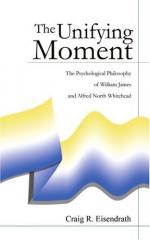|
This section contains 11,096 words (approx. 37 pages at 300 words per page) |

|
SOURCE: “Buddhist Thought and Whitehead's Philosophy,” in International Philosophical Quarterly, Vol. XIV, No. 3, September, 1974, pp. 261-84.
In the following essay, Griffin explores parallels between Whitehead's thought and the doctrines of Buddhism.
The idea behind this paper is that both Buddhist and Christian thought and existence can be enriched by appropriating elements from each other, and that the philosophy of Alfred North Whitehead can serve as the basis for this mutual enrichment by providing a “higher synthesis” of traditional Buddhist and Christian modes of thought.1 However, the focus of the essay is primarily on Buddhism's relation to Whitehead, both because of limitations of space, and because Christian thinkers have already for many years been employing Whiteheadian categories to reformulate Christian thought and thereby reform Christian existence.
The paper is composed of two parts. In Part I some central Buddhist notions are discussed in four sections. In Part II the...
|
This section contains 11,096 words (approx. 37 pages at 300 words per page) |

|


